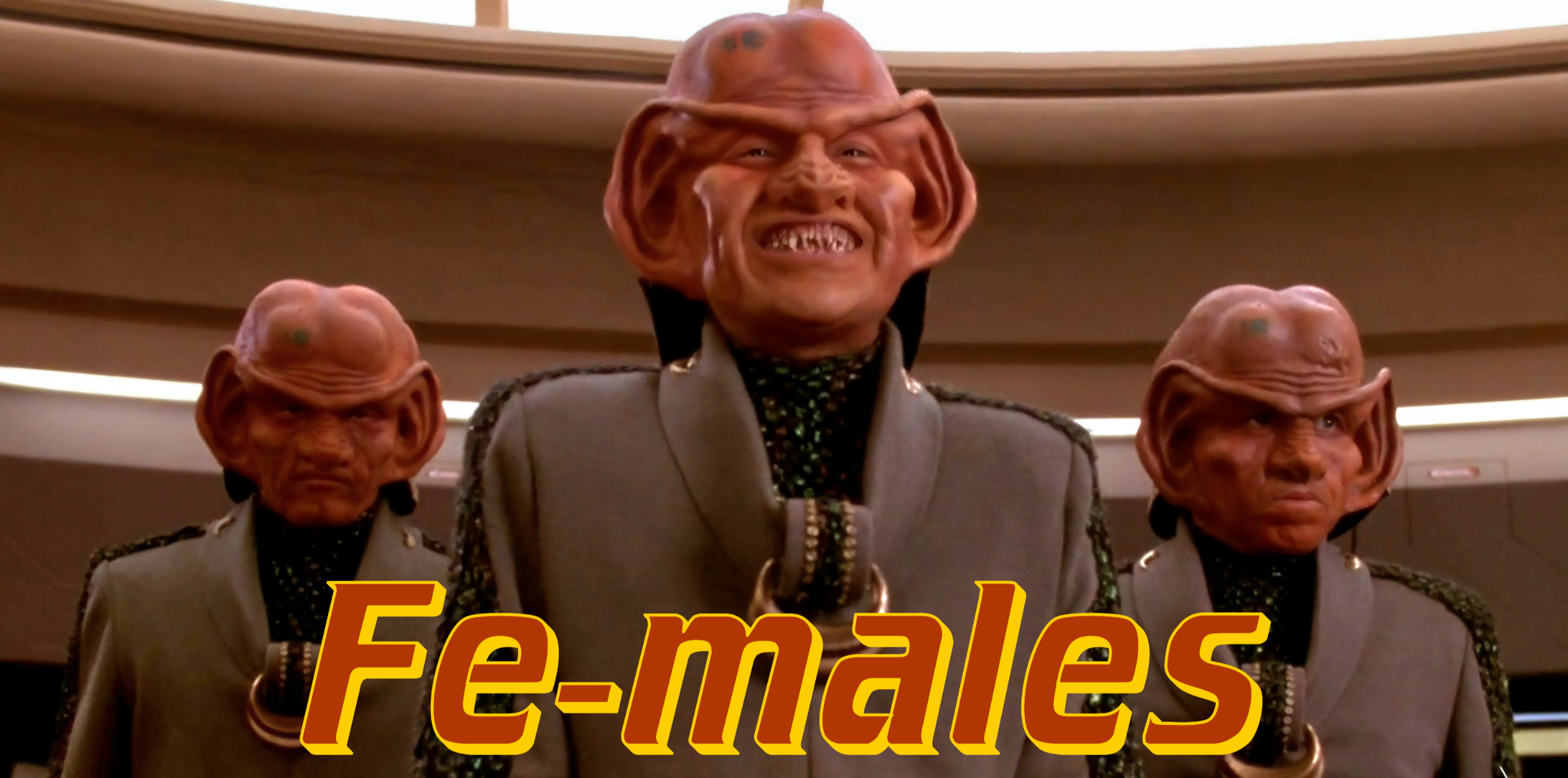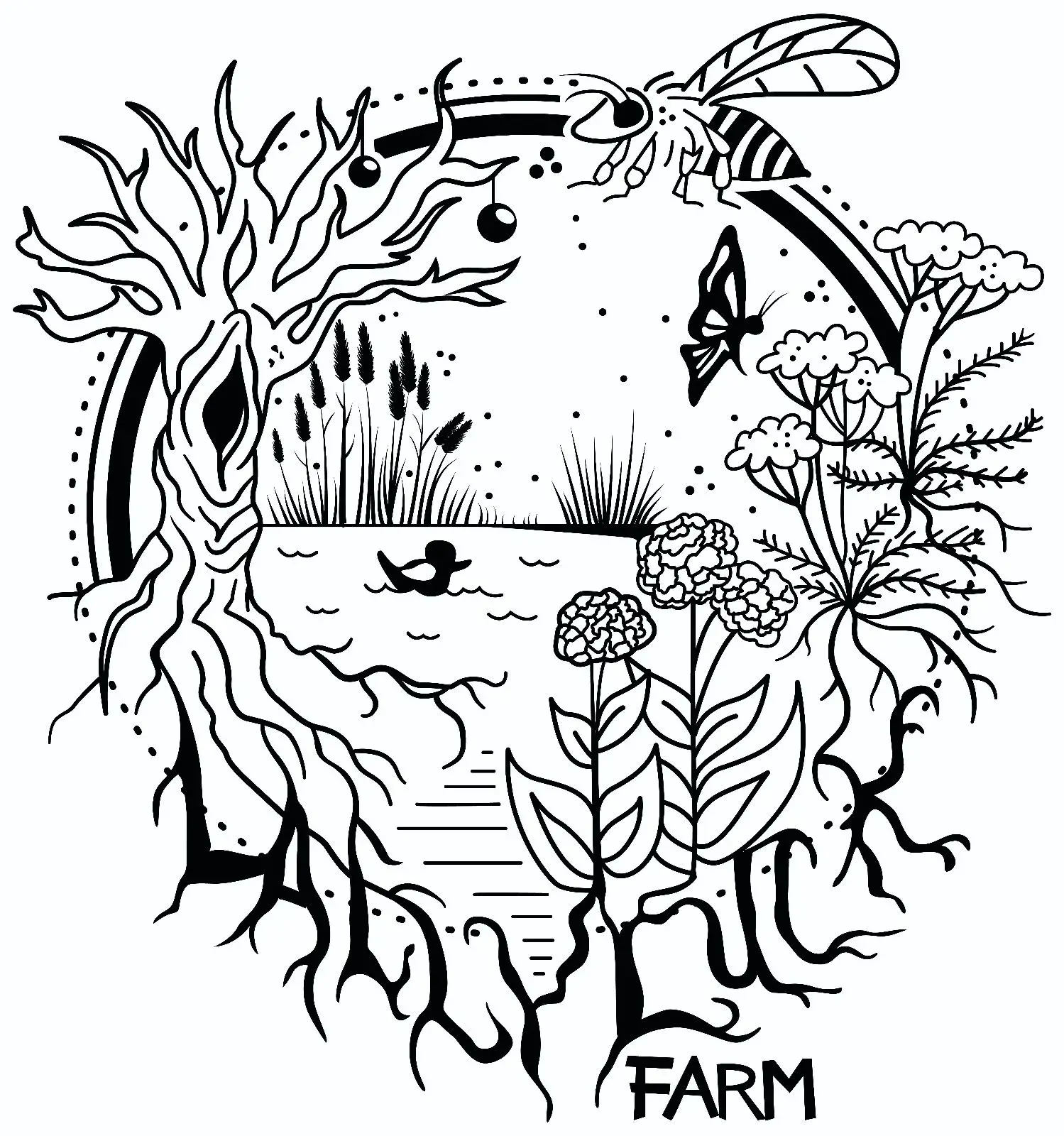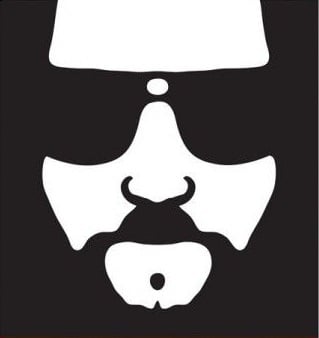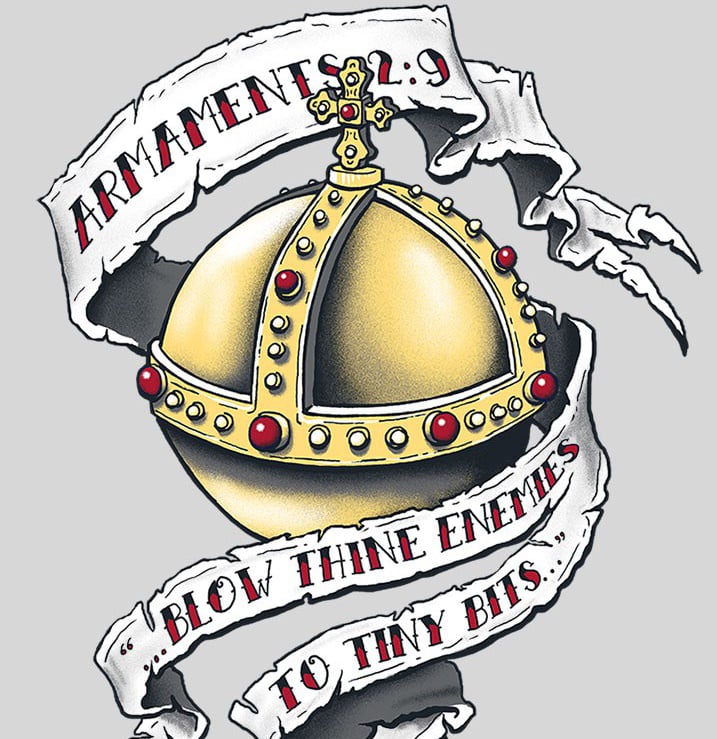I cringe every time I hear another guy refer to women like this
It’s fine if it’s consistent imo.
Men and women - 👍
Males and females - 👍
Boys and girls - 👍
Guys and gals - 👍
Men and females - 👎
Men and girls - 👎
Men and chicks - 👎
Seadogs and wenches - 🏴☠️
ヾ(⌐■_■)ノ♪
Comrades - ☭
males and females is still psychotic if you’re not specifically talking science like biology, statistics, etc. adjectives as nouns are rarely a good sign in general; it’s almost always derogative.
also boys and girls would be fine except most people who use (or claim to use) boys do it in familiar sense only. they’d never call a 40 year old jacked man they don’t know a boy, but they’d easily call a grown ass woman they don’t know a girl. exceptions are some phrases like “big boy” or “my boy” in endearing sense but that’s not how “girl” is generally used, which is a substitute for “woman”.
A lot of prior military folks will use males and females just because that’s how it’s been drilled into them. Male and female latrines, not men and women’s bathrooms. Male and female barracks, not men and women’s dorms. Male and female standards, etc etc.
dehumanization is part of military. that’s not really an argument for it.
Is it not dehumanizing to call veterans psychotic? Seems a bit like kicking someone while they’re down. The military broke them enough, the last things veterans need is to be mocked, dehumanized and treated like creeps.
first of all, i didn’t call them psychotic. read it again.
second of all, you literally say they’re broken. i don’t know what to tell you.
and finally, fuck veterans, like I give a shit how they want to be treated. maybe they shouldn’t thought of that before they volunteered to kill or help kill as many brown kids as they can. unless they were drafted or something then they get a pass. sort of.
None of the veterans I know killed any brown kids. The people we shot were generally either shooting at us, or had just set off an IED with a car battery. Most of our interactions with kids involved someone getting in trouble for giving away MREs to the kids that would walk up to the vehicle.
wow #notallinvaders. i said kill or help kill. they fall into the second category. they still volunteered for unjust, illegal wars, unless you’re talking about WW2 or something… the US had no right to be in any foreign country in the last few decades.
There’s a difference between the people who have served and the insane asylum they were subjected to. There are plenty of things that meat factory does to people that shouldn’t be replicated in society, and this is the least of them.
Those are not complete sentences or even a sort of expression of any coherent potential intent of expression. Go back to English class and fix your sentences, please.
adjectives as nouns are rarely a good sign in general
I don’t think that’s true unless you mean within the context of referring to people or something, e.g. the blacks, the poors. But then stuff like “the rich” and “the unemployed” I don’t really take issue with.
yeah, you’re right but they’re two different cases. notice how when it’s right you don’t pluralize it with an -s because some adjectives have a form of a plural noun, so they don’t have a singular form: “a poor” or “a black” is just yikes. you can find words like “rich” as plural nouns apart from the adjective forms in the dictionary. you might find “female” and “black” as a noun for people too, but they should be marked offensive either directly or in usage notes.
so that’s the distinction. “black” or “female” don’t exist as plural nouns like “the rich” or “the blessed”.
interestingly enough there are exceptions. there is no plural noun “the gay” but “gays” usually isn’t offensive as a noun, but also “a gay” is weird and offensive. language is complicated.
I believe “the gays” used to be offensive, and I did notice that myself but it doesn’t make sense to met that that would be the distinction!
i just suggested it as a shorthand. the actual distinction is whether the word is generally used as a noun as well as adjective, and when it is, usually it’s used as a plural noun.
it makes sense because plural nouns usually are a quick way to refer to a section of a population that share an aspect. but using an adjective as a singular noun has the connotation of reducing someone to that one aspect of them, which is the adjective. and so using an adjective as a noun with an -s pluralization implies there’s also a singular form which is usually offensive.
language is fluid and it evolves, so nothing here is a hard rule and there will be exceptions, and things might change with time. this is mostly based on observation and convention.
I’m not convinced that there’s even a soft rule; I think it’s just a case of the one or the other way of doing it nebulously sticking, like how sometimes you form a noun with -ness and sometimes you do it with -hood. Which now I think about it is more or less what you’re saying, but I don’t think it’s done consciously at any rate.
language conventions are rarely conscious. they just happen. every now and then there’s a campaign for our against using certain words or phrases; sometimes they stick and sometimes they don’t. but those are conscious i guess. mostly though it just happens organically.
like a perfectly normal word becomes vulgar in time if enough people just say it a certain way. it’s not like people suddenly hold a meeting and decide this word is bad now. it just starts to feel like it after a while, so it eventually becomes so.
The gays is weird because like so much terminology referring to queer people it’s reclaimed. And as with all language reclaimed in or near living memory the offensive use persists. Just like how “the queer community” is neutral as is “my sister is queer”, but “fuck you queer” or “I ain’t no queer” both use the word in its unreclaimed state, so too can “the gays” go. With it I tend to be primed for someone who is either familiar with the queer community or to hear some horribly offensive shit.
The thing is we got really good at reclaiming things in a way that I don’t know of any other group being as good at
yeah it depends i guess. saying “gays and lesbians” in passing is usually fine. but still, while you could say something like “this policy is discriminatory against gays” and not get much protest, the preferred use would still be “gay people”.
Tamales and females
Guys and Dolls - 👐 (jazz hands)
Men and chicks - 👎
What about “dudes and chicks?”
Picture you gettin down inside a picture tube.
“Dudes and dudettes” seems more on the level.
Dudes and dudes
dudes and dudettes?
Context is king, so I don’t think this is universal. Decent list though.
Chaps and dames
Bros and broads - 🤔
The ONLY time it’s fine is if it’s in a medical report or scientific paper. Written by actual doctors or scientists. And it is done to dehumanize the subject to make it easier for, say, a medical examiner to write a report without breaking down.
Using male and female for people is inheritantly dehumanizing, and that’s only ok in very specific circumstances.
What’s the male equivalent of Femoids? Is it just Moids?
I think it unironically would be androids.
Folks 👨🌾
Dicks and chicks. Like the band.

Claims to be fe-male
Isn’t man made out of iron
Disappointment
Remember kids, iron man is Fe male.
Not even ferrous, smh my head.
This is EXACTLY what I hear.
If you need me I’ll be over in the corner stroking my lobes
My mind immediately goes to the Ferengi whenever someone says “females” about women.
They sound like Ferengi lmao
“hUmOn FeEeMaLe!”
Don’t even get me started on how the average right-wing/incel/pilled male is basically already an honorary ferengi…
Sharpen their teeth and give them some giant lobes and you wouldn’t be able to tell the difference. Some of them even shave their heads already…
Don’t lump those of us who own our baldness in with those pricks. I have enough trouble with people thinking I’m a cop as is.
Oh, and you can forget about wearing any kind of wrap-around shades! Might as well put on a red hat. I feel your pain.
Do you also travel around in an unmarked van?
Nah it’s marked.
No offense to the bald comminuty meant, my favorite commanding officers were bald!
I just meant some of the right wingers are already making themselves bald (skinheads) like ferengi are bald.
Please, the Ferengi weren’t forced birthers.
Its the rest of us who are Ferengi, on our good days. Those right wingers are even worse.
Perhaps not forced birthers, they ARE however extremely sexist and force their women to be naked at all times, and have no rights…
I’d say the rest of us are more like aliens forced to LIVE on Ferenginar.
So glad someone other than me is pointing this out!
Dead
F
I sometimes hear furries mess up and refer to women as “female humans” or something along those lines, but that’s mainly because furries usually think in “male/female” instead of “man/woman” (or at least all the ones I’ve met seem to). For an example, “Cat-woman” can be kinda ambiguous and (at least imo) sounds kinda odd since “woman” is usually exclusive to female humans. In this example, are we talking about a woman who’s obsessed with cats, a woman who is a cat (a female feline with human features), an anime cat girl (a woman with cat features), or a DC Comics character (a woman who dresses up like a cat)?
Otherwise though, yeah. Yeah, especially, especially when someone refers to women as “females” as in “check out those females over there”. That’s creepy. Even furries would rather say something like, “check out those gals over there”, regardless of context.
Edit: also, does this hypothetical person say “males” too, or is it “man/female”? “Man/female” is a massive red flag.
As a woman who is bothered by the “females” thing, “female humans” doesn’t sound bad to me. It’s because “female” is used as an adjective here. It’s the same reason “black women” sounds fine, but “blacks” sounds bad. It’s reducing someone to their gender only, as if they’re not humans, too. It feels otherimg.
Thanks for writing that out. I’d never quite groked why it (and similar wording) sounded wrong: reducing a person to an adjective.
Yeah, it does bother me, but not for the same reason. It’s something I associate moderately with terf lingo. But it’s a yellow flag and not a red one
but that’s mainly because furries usually think in “male/female”
I wonder if that’s because that’s how they’re tagged on e621, or if they’re tagged that way because furries already referred to them in those terms.

Whatever you do, don’t google male chicks. God the food industry is awful
My girlfriend calls women “females”.
Where is your god now, Raychelle?
Does she pass the Bechdel test?
Is muffled sapphic moaning considered dialogue?
How I use and it will still catch issues:
Male/Female - Sex
Man/Woman (He/She) - Gender.
Cultural anthropology has recognized gender as being different from sex in textbooks since the 70s from what I remember (so half a century). My minor was in Cultural Anthropology so I remember always seeing it in college (2008-2013)
Science will continue to change as we learn more about the universe, so things are dynamic and ever growing to fuller understanding.
Also language is fluid, and changes over time/ location / culture , really.
One could argue It is inherently sexist to call people using the term female as sexist because you are using the assumption that they believe female is somehow different or lesser… And then agreeing by saying they shouldn’t call you that. Instead of empowing the term female to mean something equal to male, we would be changing the term over time to mean less than male, which it should not.
That would be something I would enjoy hearing experts in linguistics and cultural anthropology discuss.
That said I try not to use woman/man or any other identifier outside of they if I can. Terry went to the park. If I have to I will revert back to saying Terry again being redundant rather than saying she/he went to watch the ducks play in the pond, as we have to assume gender to assign that Terry is a she or he unless we know them personally, and the name could be used for either. (In reality all names are void of sex or gender, they are simply a name). If I call a tree an Walnut tree it has done nothing to tell me that it is male/female, man/woman, it has told me it is an entity that we call Walnut.
A bitonist will tell you a Walnut tree is monoecious, meaning that it can produce everything on its own to complete the reproductive process. Hermaphroditic plants do not, they contain part of what is need for reproduction, like humans… Which we also classify as hermopheodites. So if we see a rose, a cherry tree, a chicken, or a human, we split them into a category we label as sex. Male and female are the term we usually see. (Most vegetables fall into this category, but that’s unrelated)
In a world where we fight for feminism (equality among sexes) we would say all pieces are equal and should have equal rights. Those pieces are male/female in humans.
Our role in society varies and the way others treat, react, interact, whatever you wish to view it as, is what we label as Gender, and gender roles. Humans for the most part have tried to practice monogamy for various reasons. That isn’t something that vegatables have to worry about as much.
So feminism within gender would refer to equality of rights within the construct of those interactions having to do with gender. So we label one part of that group women, and one part men in humans, and there is overlap (in both sex and gender).
Overlap is fine and naturally will exist in both sex and gender. Neither sex nor gender should inherently make one person less than another. That is the full scope of how I view feminism. I feel you cannot choose sex, not even medically at this stage but the future may be different, you CAN choose gender as it is your role in this world and a person should be able to choose how they wish their life to be interacted with. If a male/man wants to be be a mechanic by day and florist by night that is his choice, and nothing should look at them as being any more or less for any of their choices so long as they are not blocking the choice of another person’s ability to choose their path. My view on life is about the freedom of choice.
So to say that men, women… Any other identifier someone chooses and aspires towards should have any lesser rights in society I would say is wrong. It is against their freedom to live their life with their choices.
All that said… I feel someone using a name/identifier incorrectly is just ignorant or willfully trying to be against others life choices. Many are ignorant and that is what education is for. I will learn more every day and learn how wrong I have been all my life. Those who are willfully trying to be against others though… they are the issues we run into. So if Fred says his coworker is a female to his monogamous partner, it doesn’t mean Fred is a problem as much as that Fred may not have understood the terminology he was using was different than the expectations of the listeners. Ignorance. You can overcome ignorance through understanding, and education. Calling them an issue, often creates more of a rift.
Even if you want to separate sex and gender and define sex using sexual characteristics (not actually a good idea, see works by Judith Butler and Julia Serano among others, although I wont fight that point here), almost no sexual characteristics are immutable. The only ones that I can think of are chromosomes and gametes, but chromosomes aren’t even binary (or observable without a microscope) and gametes arent a good basis either – should being infertile affect your sex?
Let me ask a genuine question then, if you don’t separate sex and gender, how does one recognize things like differences in people’s eyes. Our gender roles have no effect on those physical characteristics that are created by varying factors such as chromosomes. We characterize those differences into the area of sex normally, but like I said previously, there is overlap in the sexes, chromosomes aren’t always in category A and B.
Or are you saying sex shouldn’t exist at all as a classification? Fertility has no effect on what physically was attempted to be formed. Mutations and errors will always occur. That doesn’t mean someone should be alloted lesser rights, that just means they formed differently.
The short and somewhat cheeky answer is that we recognise differences in people’s eyes by recognising differences in people’s eyes. You don’t need to refer to what we have historically designated “sex” to do that.
But here’s the longer answer: I’m sure it’s true that in the aggregate you can observe some differences in the eye that correlate with sex. But so what? That, along with any other aggregate difference, doesn’t actually validate sex as a useful category. The simple fact is that any way you split a population in two, you will see aggregate differences. These differences are then simply used to reify that categorisation as more important and concrete than it really is.
Let me illustrate this with a hypothetical. About half the population requires glasses (or other vision correction), and half doesn’t. If we constructed social categories and social roles around these, people would start caring enough to research what the physiological reality correlates with. Is there a difference in athletic ability between glasses-wearers and non-glasses-wearers? Is there a difference in height? and so on and so on. These real physiological differences are then used to reify the social construct, and when someone invents contact lenses, suddenly people go “but these categories are real! look at all this evidence showing how these categories are different!” and so on and so on
but so what? You can split a population in two however you like. Short and tall, glasses or no glasses, male or female. All come along with lots and lots of associated physical and mental differences in aggregate. Why do we think sex matters more than the others? Certainly not because of any physiological differences that actually matter in the modern world. It’s socially motivated.
“Why do we think sex matters more than the others?”
In general, because our species dies out of you don’t pair properly. You can pair a colorblind person with a nearsighted person and if the organs don’t match up, no reproduction.
Throw in that our society is set up in a fucked up way that we need to increase the population at all times otherwise we won’t be able to care for the elderly before us (social security, medical care… Whatever it may be) reproduction matters a lot to our society.
That may have been true once, but no longer – there are no shortage of ways for queer couples (or, for that matter, infertile cishet couples) to have children.
Even if we assume that reproductive categories are so supremely important that we should socially categorise based on them (which I reject), that just brings us back to my original point. Why are infertile people still categorised into a binary sex that has nothing to do with their reproductive capability?
Because sex as we culturully underatand it is socially constructed. We use markers that don’t reflect reproductive reality. Perhaps once they were the best proxies we had for a guess at reproductive capacity, but not any more.
All of those ways include a male and a female as far as I know? More steps are added, like moving the sperm or egg, but in the end it is sperm and egg. Gender is what you are describing as socially constructed as per textbook definition. Infertility occurs, if you want to say they aren’t male or female, or say they don’t have a sex until they are sexually mature and that ends when they are no longer able to reproduce there are other names, but I think that is just overcomplicating something that was painted with broad strokes. Is it “moral/ethical/correct/right” that’s for the beholder, but if your battle is just about the terminology of how to classify someone’s anatomy, I’m for hoping it goes well. The more people learn, and the less ignorance about how reproduction works should make the world a better place long term I hope. Out of curiosity do you mind me asking what part of the world you live in? It’s been nice discussing this, always good to hear what others are thinking/learning.
That’s not really how sex and gender work, as the other person already pointed out, but in reality the distinction is much simpler. When talking about humans:
Male/Female: adjectives
Man/Woman: nouns
She is a woman. She’s a female professor. She is talking to her male colleague. He’s a man.
It’s really as simple as that.
The only time you’d use female/male as nouns is when talking about animals.
The lion is on guard, as another male approaches. The females keep their distance.
During the whole Olympic controversy on the Algerian boxer, Imane Khelif, questioning her actual gender, someone was making mental gymnastics that she still has testerone level higher than “vanilla females”.
Lol, vanilla females. That alone says a lot.
Not that we need to open this can of worms here, but it’s a pet peeve of mine that “vanilla” has become a term used to mean plain, boring, sheltered, standard, mediocre, underwhelming, basic, and uninteresting.
Vanilla is an amazing flavor that comes from orchids that must be hand pollinated to cultivate at scale, and has a long and interesting history. It’s the second most valuable spice after saffron.
Just feels wrong to use that as a synonym for bland and blah.
IIRC the reason for this is because synthetic vanilla flavour was one of the first to be produced, so while actual vanilla is still quite valuable, it became the go-to ‘default’ flavour.
Well depends on context i guess. Like saying “my women teacher” just doesn’t sound as good as “my female teacher”
That’s an adjective, that’s fine. It’s about using “females” as a noun.
Yep. Same with saying “a Trans Woman” versus “a Trans”.
“the transes”
A trans what? m2f? f2m?
Transformers, both the electrical and cybertronian variant
Does it matter, tho? Does every trans person need to be defined by their assigned gender? Do they need to be inserted in a binary system?
I am a genderless blob :3
Female as the adjectival form of woman is normal and ok. As a noun for a human it tells me you’re on one of a few varieties of bullshit
Can you give an example of each?
My teacher is female.
My teacher is a female.
The former is adjectival, the latter is an icky noun. That “a” is doing a lot of work lol.
Latin languages:

The latter is indeed awkward
As a noun: “Females are often uncomfortable being called females.” As opposed to “Women are often uncomfortable being called females.”
As an adjective: “The reported rate of sexual violence among female soldiers indicates a serious problem that is being insufficiently dealt with.”
The most offensive part is using the noun as plural when it’s meant to be singular, as in your example
I agree with the post. It’s coded derogatory speech while being technically correct. Personally, I would go as far to say it’s a dog-whistle and is absolutely a flag, especially if it renders any speech clunky and labored, or side-steps a person’s gender transition status.
Also, here’s something I’ve observed that may be relevant.
IMO, most of the time people use gender when telling a story, it’s not relevant information in the first place. In light of recent events, public awareness, and politics, non-gendered speech (in English at least) is automatically the most inclusive way to go and it’s a good habit to develop. The exceptions here are where it’s information that supports the story, disambiguates complicated situations (e.g. talking about a drag persona), or where it’s gender affirming in some way (e.g. respecting pronoun preferences).
I see this happen a lot, especially where woman/female is used as extra information when expressing anger, frustration, and disgust. For example, I hear “this woman cut me off in traffic” far more than “this man cut me off in traffic”, with “this person” or “a BMW driver” as a maybe-neutral-but-also-likely-male coded qualifier. To me, it suggests a kind of negative bias for gender, which may or may not be unconscious (depends on the person). It may seem like a small thing, but it’s freaking everywhere and it’s gotta stop.
For the rare occasion where sex or gender supports the story, “my teacher, who is a woman, …” or “my teacher, (s)he…” does the job. Yeah, it’s is a bit tougher on the tongue, but you should only need to say it once for the whole telling.
Same goes for race. The number of times a story starts with “this black guy…” and the story has nothing to do with race is way too high. Especially from white people who just say “this guy” if the person was white. It just shows your implicit (or explicit) bias and that you think of someone differently because of the colour of their skin and you’re attempting to encode that feeling within your language.
I agree with most of what you said, but I think using male and female as adjectives is far better than the clunk. Additionally it can help break the whole people thinking of a trans woman as a “male woman” bs. (I have a whole rant about how the “sex and gender are different” thing is often used to ignore the biological realities of the effects of medical transition).
But for the most part it’s smoother to say and can make the fact that you need to mention that you’re speaking about a woman less of a big deal. For example “My cousin, who is a woman, has been having a particularly difficult time finding a girlfriend in her rural town.” Compared to “My employee, a female engineer, is particularly diligent about making sure our products are comfortable for people of a variety of body sizes”
My incel cousin refers to women as “chicks and babes”. Then if he sees an unattractive woman, refuses to call them anything.
It’s really frustrating dealing with him because he constantly whines about his loneliness and isn’t aware how his small mindedness is causing people to bail on him.
with “this person” or “a BMW driver” as a maybe-neutral-but-also-likely-male coded qualifier.
If this is “likely male coded” how exactly do you suggest referring to other drivers in a neutral way?
How about other driver?
I try to use “driver” or “person”.
How are “this person” and “a BMW driver” likely male coded while “person” and “driver” are fine? It sounds to me like you’re just assuming negative intent in others, while your own use of the same words is fine because you know what you mean.
It’s not even technically correct, you’d have to talk about female humans to be technically correct.
I had a woman boss who would always refer to women as female (like “you know the manager of that department is a female?!”). I’m still not sure how I feel about it.
Gaslight Gatekeep Womanboss
I know it’s a really awkward phrasing, but “I had a boss, who was a woman…” sounded even more awkward to me than just “woman boss” 🤷♂️.
I had a female boss.
Adjective is fine, using it as noun is icky
Sounds like she’s talking about an animal
It would be worrying if the department’s boss was a plant, or fungi…
I think the best response is always “you don’t know that”. Sex and Gender are not the same thing, and adults should know by now that they can’t tell what’s in someone else’s pants by looking at their face.
Well I did once explain the difference between sex and gender as she seemed confused and was unable to wrap her head around a colleague using they/them, but that led to a slightly vacant yet patronising expression on her face. Also, call me a coward but I’m not going to clap back at my own goddamn boss, I prefer my working days to not be more of a living hell than they already are. Regardless, she’s retired now.
First it doesn’t really matter what’s between their legs unless you intend to date them. It’s easy enough to determine what most people identify as and thus what you ought to treat them as.
That said you can tell what virtually everyone has in there pants. 99.5% of people are cisgender. Of the people who are transgender it is usually not terribly hard to see most of the time both what their birth gender is and what gender they identify as which is why its pretty trivial to be polite. Although it is impossible to tell if someone has had surgery at least in the US you could bet on no and be right most of the time because of cost and inequality around here.
Found the awkward “I’m not transphobic” transphobe.
Meanwhile its impossible to tell the difference between coffee and milk just by looking at it! If you disagree I shall declare you an anti-milkist. It’s completely impossible you disagree with my assertion therefore you must be motivated by bigotry!
Creative analogy. However, it’s not even remotely applicable.
You’re falling victim to a basic observation bias. You notice the trans people who don’t pass, but you have no idea how many trans people you see that do pass, and you’d never even consider that they’re trans.
Again, found the “but I’m not even transphobic” transphobe.
You are correct that I might be unclear on how many are passing be virtue of only noticing the portion that do not.
Still 99.5% of people are cisgender. Some portion of those who are transgender don’t pass. So 99.6–99.7 have a discernible gender. I still think my statement is correct numerically. It’s not even clear what position you are defending and what position beyond a picayune one you think I’m attacking.
Keep being ignorant to your own biases, it will do you well in life, pompous jackass.
Male or female = sex = what’s in their pants.
Man or woman = gender = how they express and identify.
While I recognize that some may use these terms differently, I find that having a strict sex/gender seperation for them in my personal use helps greatly in keeping the concepts distinct and having empathy for those whose gender is not sex-conformant.
That it also leads to a pithy rebuttal to “what is a woman” bigotry is just a nice side effect. Apologies if my usage was not immediately apparent.
Male or female vs man or woman are just adjectives vs nouns they both used to reference both gender. Using one for sex and the other for gender is simply inaccurate. This is why one may say that someone is a transgender woman but one never hears that someone is a male woman unless its M A I L woman.
English is an organic language and can shift subtly with each speaker,. Especially if prior usage makes communication more difficult.
NOT having distinct terms for sex and gender makes communication and understanding harder. If you have alternate terms you think are better I’d love to hear them., but if all you have is an insistence that “incorrect English” is a thing I’ll just have to wish you a good day.
There’s vanishingly few places where the use of the word female is correct. The test is generally if the word male would also be correct and not weird there. If the speaker is talking about men and females then we have a problem.
There’s also a couple exceptions where the misogynist language got assimilated but it’s so normal that you can’t tell just by their use of the word. Like the military talking about female soldiers. For example there is a need to distinguish between male and female body armor. But also they talk about the needs of soldiers and female soldiers without a hint of disparagement. It’s just how they make it clear there needs to be a second latrine ditch and the camp shower needs to have at least canvas walls. The only fix most of us can see for this is persistently referring to men as male soldiers too because women soldiers sounds weird and doesn’t solve the problem of default soldier vs qualifier soldier.
Exactly. The use of “female” is clinical in that context. It’s meant to be sterile, emotionless, professional, and adequately descriptive.
I would say as a general rule its fine when you aren’t talking about people, ex: female body armor, female frog, etc
vanishingly few
As it should be. Equality is crucial, and women’s rights generally pave the way for minorities. Uff. I hate that this is usually how it is, but look how far women have come since the turn of the 20th century - hell, even the 21st century
Imagine getting fitted with body armor suited for a different body type and having to just deal with it when rounds are coming at you. Yeah, we need a new language to make sense of non-cis people in the military, but we shouldn’t sacrifice their lives because of it.
I bet you’re in the same boat. In the interim, we use the language necessary to keep us alive and respect everyone in our crew in the process. But yeah, guys calling girls “females” outside of that is weird and definitely a red card for dating. That should be the brunt of our attention.
If you want to only specify gender then that is the correct word to use. If someone wants to be derogative towards a certain group, the said person can twist the context of almost every known word so that it sounds rude and disrespectful. Does not mean everyone else should stop using that word in the correct context. I don’t know what else to say.
It’s equally, or more, correct to say “female/male people”. It’s just like “poor people” is ok, but “the poors” makes you sound like an asshat. Including “people” makes the difference.
I know/knew several women that say “females”. The aphorism holds up in that case as well.
Which is worse, “Females” or “Ladies” (said with an inflection)
Depends if you’re addressing your male friends

























